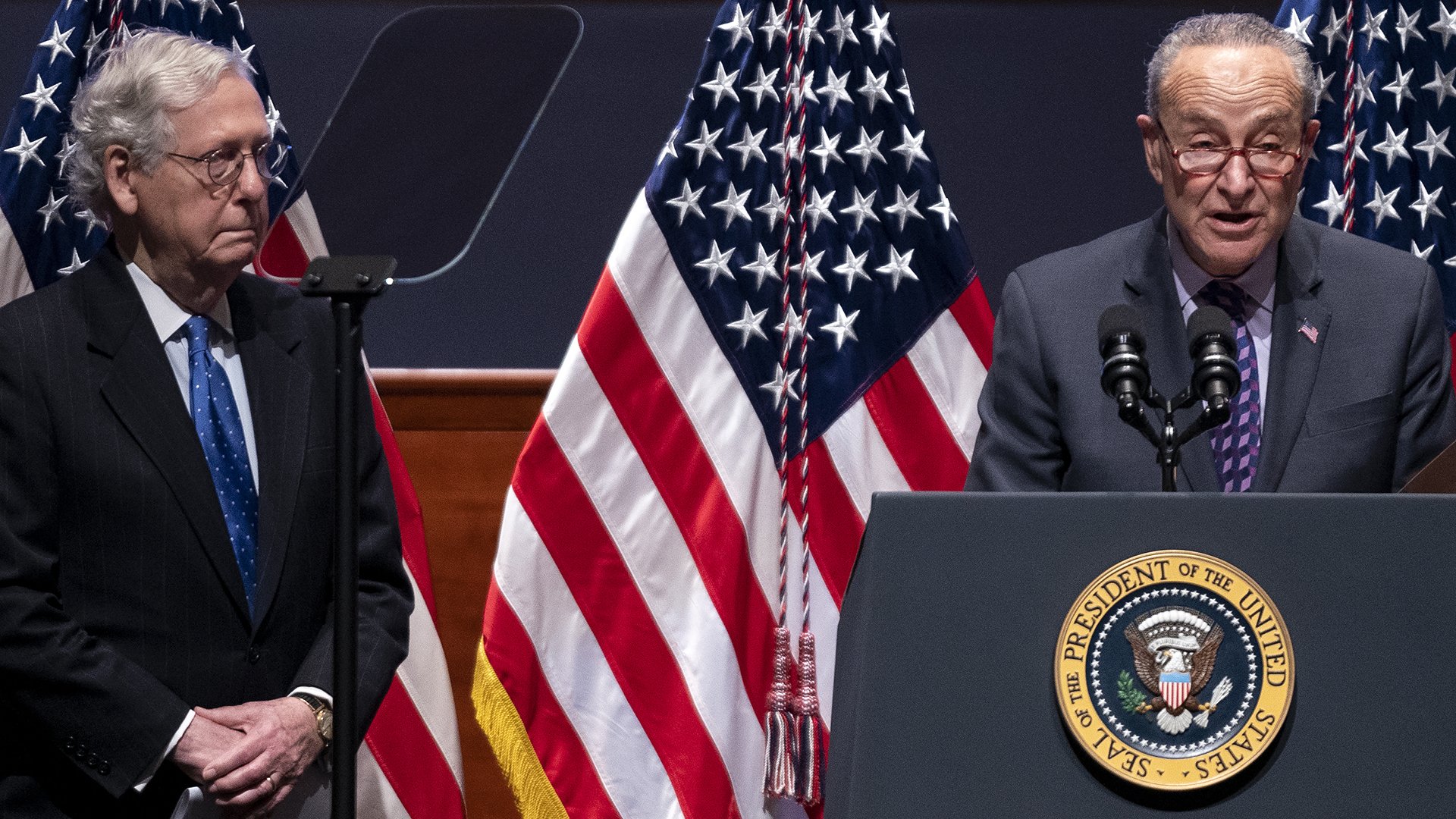OPINION: This article may contain commentary which reflects the author's opinion.
A bipartisan group of senators, that includes 10 Republicans, have agreed to the framework of possible new gun safety legislation.
The agreement was reached on Sunday and will include increased funding for red flag laws in the form of grants to states, mental health, increased scrutiny for anyone younger than 21 who wants to purchase a gun, including looking into their juvenile records and school safety, CNN reported.
“I’m glad Senators Cornyn and Murphy are continuing to make headway in their discussions. I appreciate their hard work on this important issue,” Senate Majority Leader and Kentucky Sen. Mitch McConnell said.
“The principles they announced today show the value of dialogue and cooperation,” the senator said.
“I continue to hope their discussion yield a bipartisan product that makes significant headway on key issues like mental health and school safety, respects the Second Amendment, earn broad support in the Senate and makes a difference for our country,” he said.
Will the final product get even more then 10 Rs?
This statement from @LeaderMcConnell — while not an endorsement — is pretty positive.
No doubt members of his conference will watch McConnell’s words and actions closely on this. pic.twitter.com/Y4Zcu0X7HH
— Gabe Fleisher (@WakeUp2Politics) June 12, 2022
The government would provide “resources to states and tribes to create and administer laws that help ensure deadly weapons are kept out of the hands of individuals whom a court has determined to be a significant danger to themselves or others,” according to the release. The proposal would also include “major investments to increase access to mental health and suicide prevention programs; and other support services available in the community, including crisis and trauma intervention and recovery.”
Additionally, the legislation would provide resources “to expand mental health and supportive services in schools, including: early identification and intervention programs and school based mental health and wrap-around services.”
The group on the release includes Republican Sens. John Cornyn of Texas, Thom Tillis and Richard Burr of North Carolina, Roy Blunt of Missouri, Bill Cassidy of Louisiana, Susan Collins of Maine, Lindsey Graham of South Carolina, Rob Portman of Ohio, Mitt Romney of Utah and Pat Toomey of Pennsylvania. Democratic senatores on the release include Kyrsten Sinema and Mark Kelly of Arizona, Chris Murphy and Richard Blumenthal of Connecticut, Cory Booker of New Jersey, Chris Coons of Delaware, Martin Heinrich of New Mexico, Joe Manchin of West Virginia and Debbie Stabenow of Michigan. It also includes Sen. Angus King of Maine, an independent who caucuses with Democrats.
President Joe Biden responded to the news of the agreement.
“I want to thank Senator Chris Murphy and the members of his bipartisan group—especially Senators Cornyn, Sinema, and Tillis—for their tireless work to produce this proposal. Obviously, it does not do everything that I think is needed, but it reflects important steps in the right direction, and would be the most significant gun safety legislation to pass Congress in decades. With bipartisan support, there are no excuses for delay, and no reason why it should not quickly move through the Senate and the House. Each day that passes, more children are killed in this country: the sooner it comes to my desk, the sooner I can sign it, and the sooner we can use these measures to save lives,” he said.
And Senate Majority Leader and News York Sen. Chuck Schumer said hhe would have senators vote on the legislation “as soon as possible.”
“After an unrelenting wave of gun-related suicides and homicides, including mass shootings, the Senate is poised to act on commonsense reforms to protect Americans where they live, where they shop, and where they learn” he said. “We must move swiftly to advance this legislation because if a single life can be saved it is worth the effort.”
“One source with knowledge of the discussions said negotiators were hoping to get 10 Republican senators to sign on to the agreement before it was announced, in order to show they can overcome the 60-vote filibuster threshold. The Senate is currently evenly divided between the Democratic and GOP conferences with 50 seats each,” CNN said.
